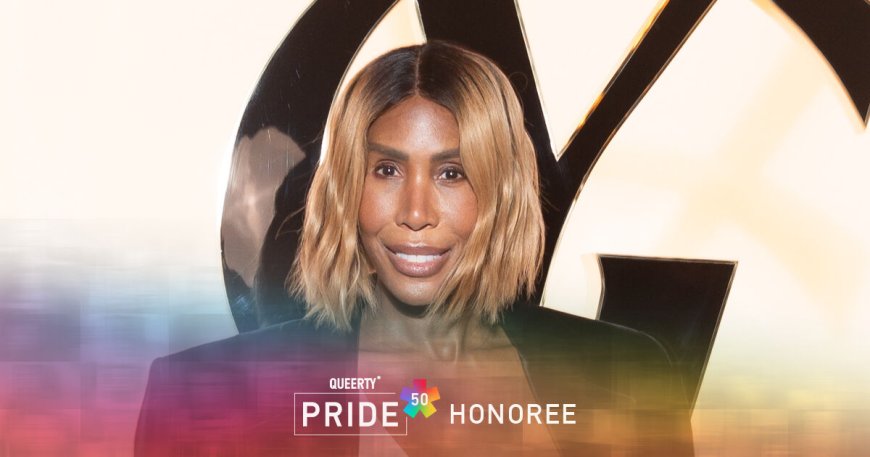Honey Dijon is finally (finally!) getting her flowers
By this point in her near 25-year career as a DJ, you’ve probably heard Honey Dijon even if you haven’t heard of Honey Dijon.


By this point in her near 25-year career as a DJ, you’ve probably heard Honey Dijon even if you haven’t heard of Honey Dijon.
The groundbreaking electronic music producer was recruited to make a special contribution to Madonna’s Finally Enough Love: 50 Number Ones album—remixing “I Don’t Search I Find” from 2019’s Madame X—and she also had a hand in mixing two of the most popular tracks from Beyoncé’s Renaissance album, “Alien Superstar” and “Cozy.”
And that’s only in the last few years!
Dijon has released two albums, 2017’s The Best of Both Worlds and 2022’s Black Girl Magic, as well as remixed songs for Christine and the Queens, Cakes da Killa, Lady Gaga, Jessie Ware, and even David Bowie.
Yet even as Dijon’s notoriety and star as a nightlife fixture across queer and alternative spaces has continued to rise, she has managed to keep it all about music above all else, using her producing talents as a tool for liberation.
“I feel like a lot of sexuality and sensuality is missing from dance culture,” Dijon told an audience during a lecture hosted by the Boiler Room in Santiago, Chile.
About how the focus of electronic music has changed, “When I was growing up, you actually couldn’t see the DJ. The music was the star,” she explained. “So people actually danced with each other instead of side by side.”
She added, “And to me you can’t have sexual energy if you’re shoulder-to-shoulder. You need to be body-to-body.”
Dijon likes to say she was born in Chicago but raised in New York City—after all, NYC is where she decided that she wanted to become a DJ, beginning in 1998.
“I was just really, really lucky to be born at a time and place at the beginning of this subculture that was created by queer people of color and women,” she explained in the same lecture.
“And I try to continue to carry that information with me today because I feel like dance music has been so commodified and colonized, and ‘heteronormafied,’ and it’s lost a lot of its color, and queerness.”
She added, “Everything seems so segregated: the gays don’t want to party with the straights. Everybody has their own sh*t.”
The dance floor at a Dijon show reflects her efforts to reunite fans of house and electronic dance music—all colors and queerness for a sweaty night of dancing that can stretch into the late morning in her signature “Honeyverse.”
Like her commanding arrangement of music, Dijon’s public visibility as a transgender woman also commands conversation about LGBTQ+ representation, celebration, and has created opportunities.
When she is not behind turntables, Dijon is telling her story, slaying red carpets, rubbing elbows with trendy designers at New York Fashion Week, designing clothes for Comme des Garçons, or modeling, recently helping to relaunch the Victoria Secret fashion show.
Being a club kid in New York helped her transform from “a very effeminate child” to a very effective music producer who is comfortable in her skin, she told The New York Times. As she explained, she struggled to get a job as a trans woman.
“So clubbing at that time was really a great place for you to make a quote-unquote honest living,” she said.
These days, Dijon stays booked and busy, but she never forgets how and where she found herself, and she has been committed to helping others do the same through music. Every year during Pride Month celebrations in New York City, she plays a set that lasts somewhere around 12 and a half hours.
About the standard 2-hour DJ set versus a 12-hour set, “That’s masturbation for me,” Dijon said. “It’s the difference between a quickie and a good **** as far as I am concerned.”

 Mark
Mark 





